
THE DEEP HEART OF MAURITIUS
An Encounter Between Giants, Stories, and the Need to Care
Why Mauritius is a Marine Mammal Haven
🌊 First Contact
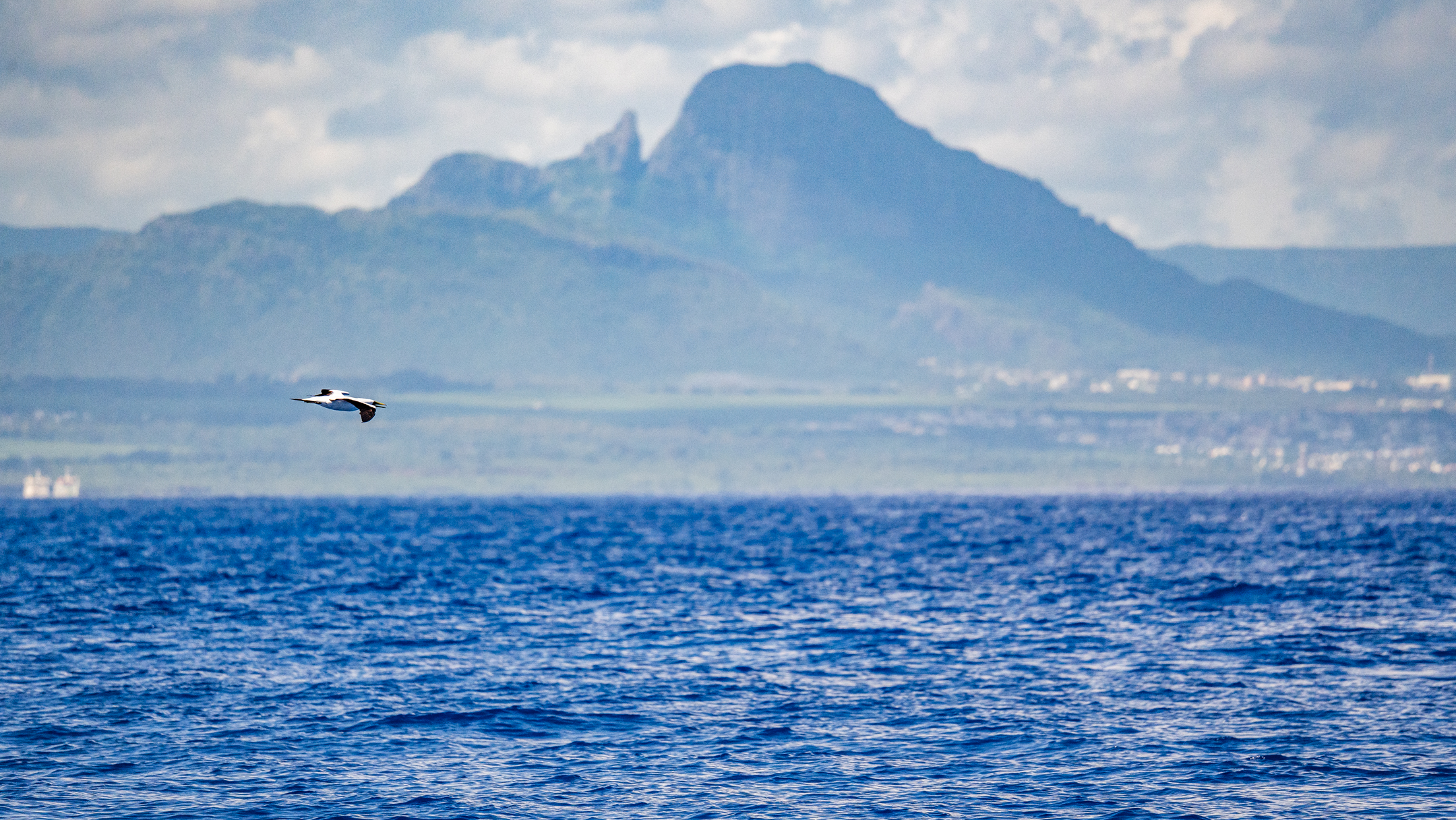
A lot of people talked to me about Mauritius. Videos, photos, stories. The blue water. The waterfall inside the sea. The colours on land. Corals everywhere. Turtles. Surreal landscapes. The Indian Ocean.
My first contact with it was a day that had all the weathers in one hour. A tremendous storm rolled over the southern beach just as a strong sun shone stubbornly through the clouds. A rainbow arched over me like a question. I stepped into the water and at that very moment, lightning struck the island illuminating everything, vibrating the air. That’s when I knew: something special awaited me here. And it did.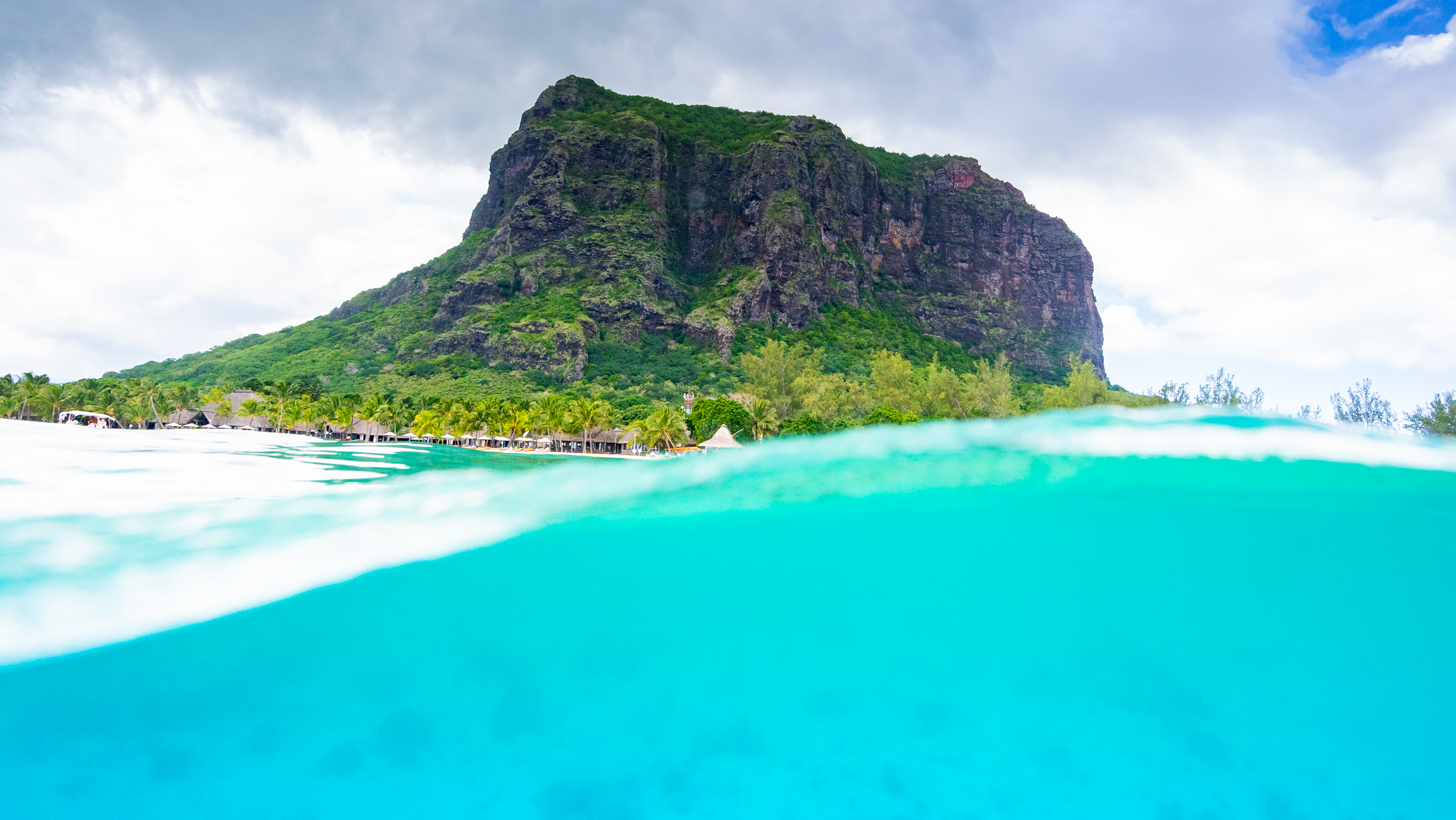
📡 A Mission Begins
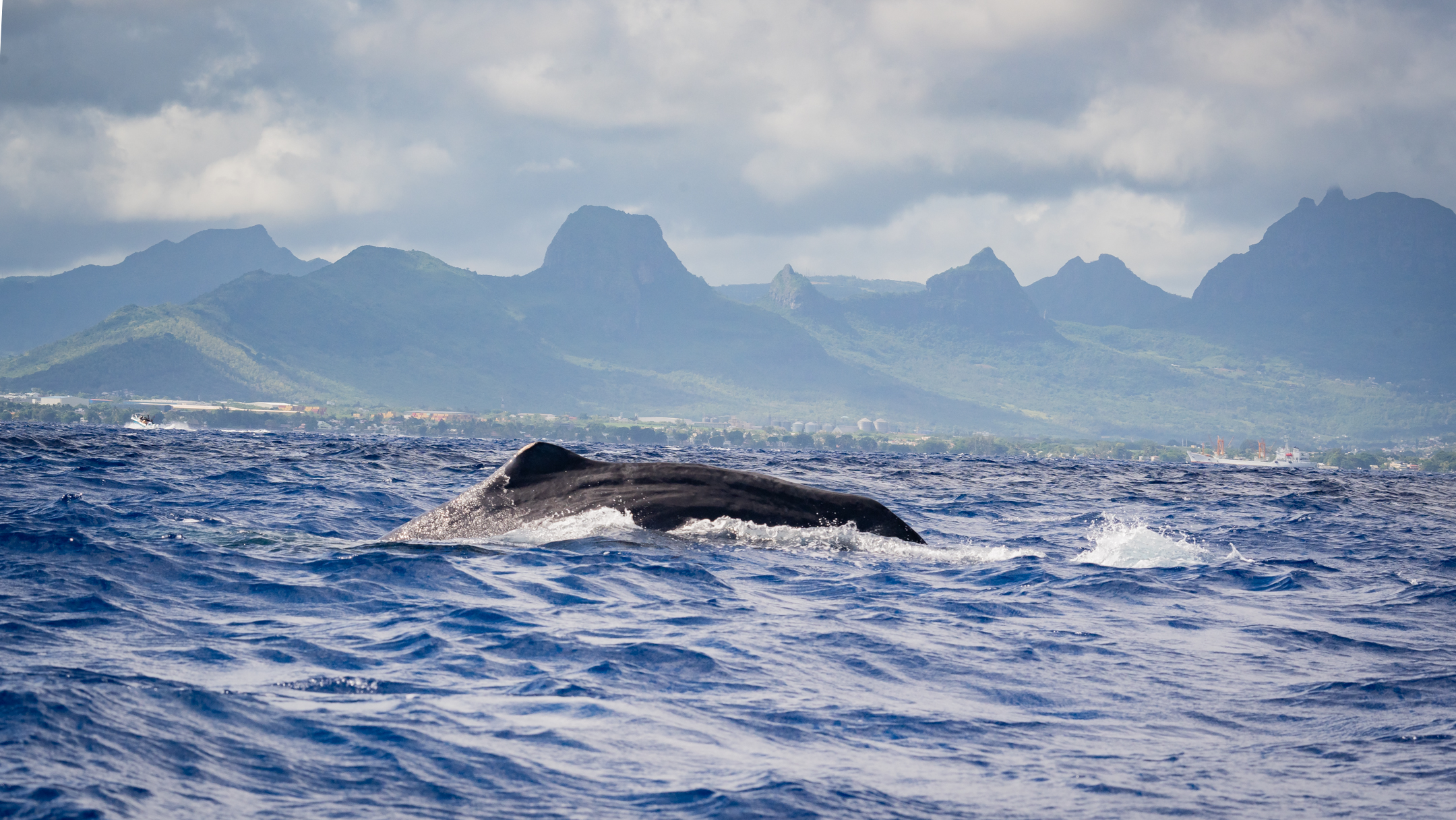
I arrived in Mauritius to assist a conservation project on sperm whales. Natacha, a god of the ocean in my eyes, invited me to join a tagging campaign. This was my fifth time working on a project like this—everything began in the Canary Islands with beaked whales. But that’s a story for another day.
If you want to know more about this incredible ocean creatures you can visit this link
I didn’t know much about the biodiversity here. Then I had a meeting with two passionate leaders in Mauritian conservation and I started falling to pieces. I realized I was touching a paradise for animals. This island is a marine highway, home to 19 species of marine mammals, and two of them are the stars of the show.
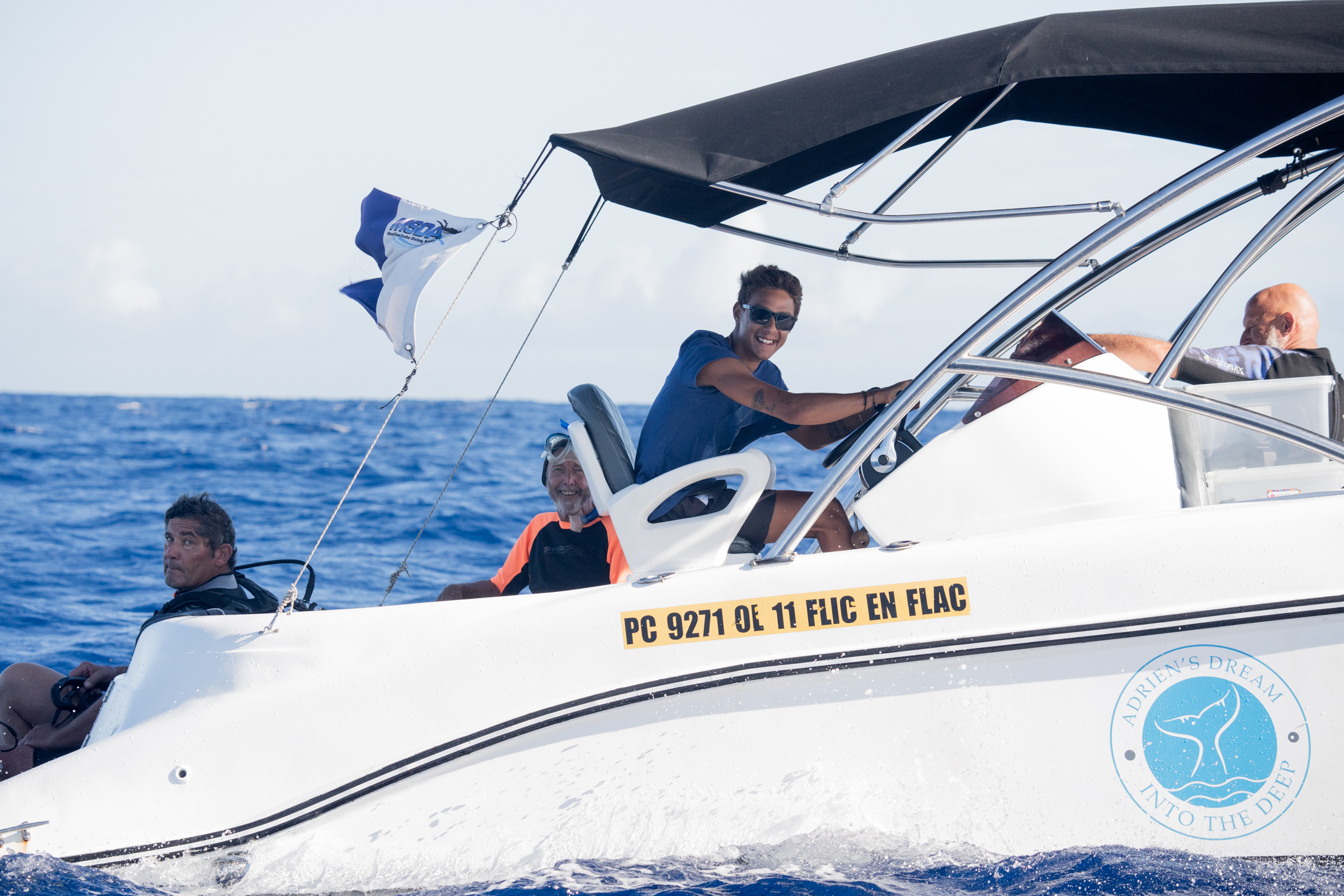
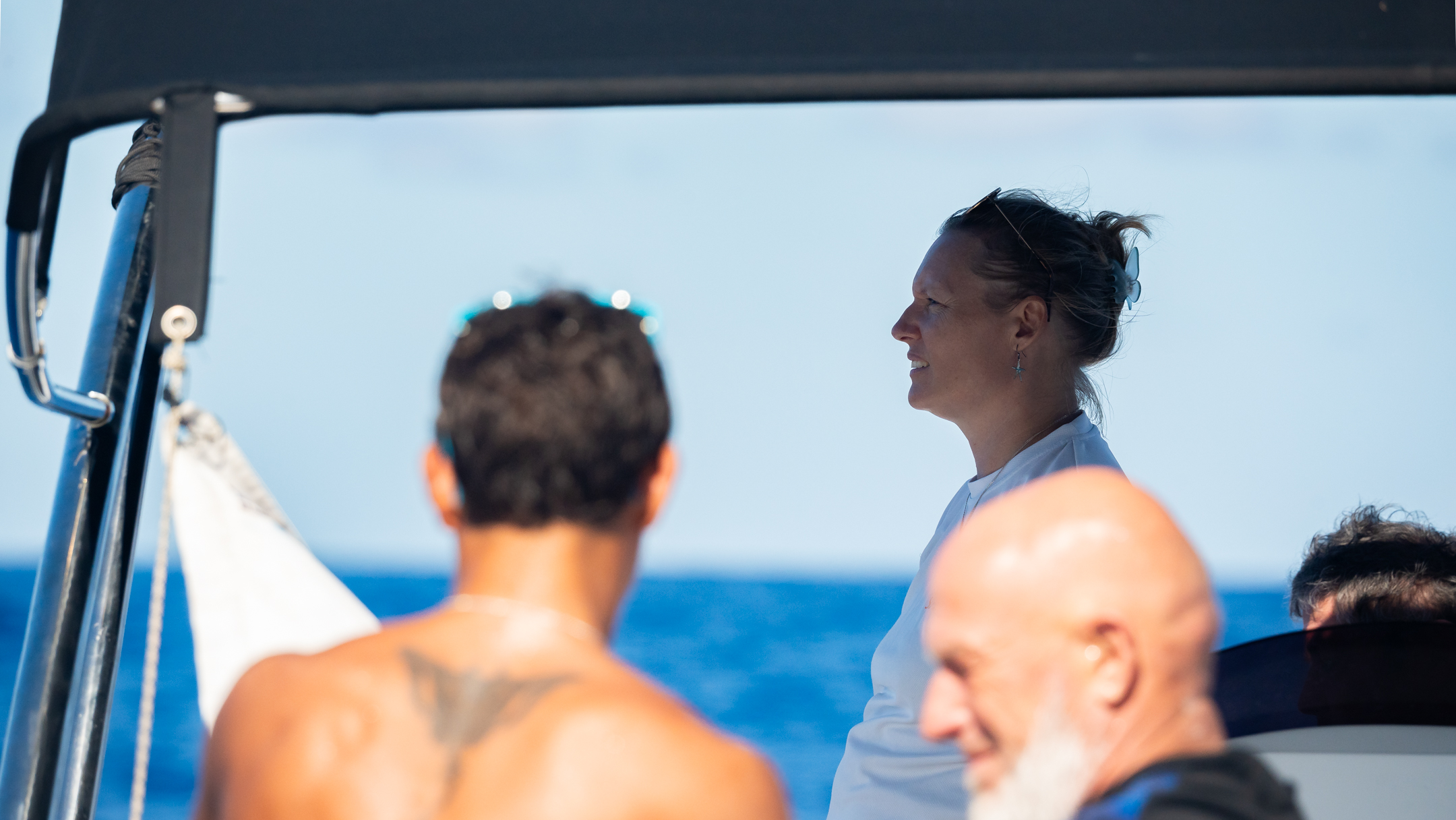
Adrien, owner of a whale watching company, and Lana, a researcher who has studied cetacean behavior here, are both completely in love with this ocean and the lives it holds. Lana connected me with Adrien, and he—an awesome human who grew up with these animals—welcomed me aboard. Now I’m guiding tours on the boat, while collecting data for conservation. And I have to say: this place is surreal.
🌋 Why Here? Why So Many?
Mauritius is volcanic. That means underwater drop-offs—steep, dramatic, and deep. Some points plunge to 4000 meters. So you’ve got everything: coastal animals like spinner dolphins, spotted dolphins, Fraser’s dolphins, bottlenose... and then the deep divers.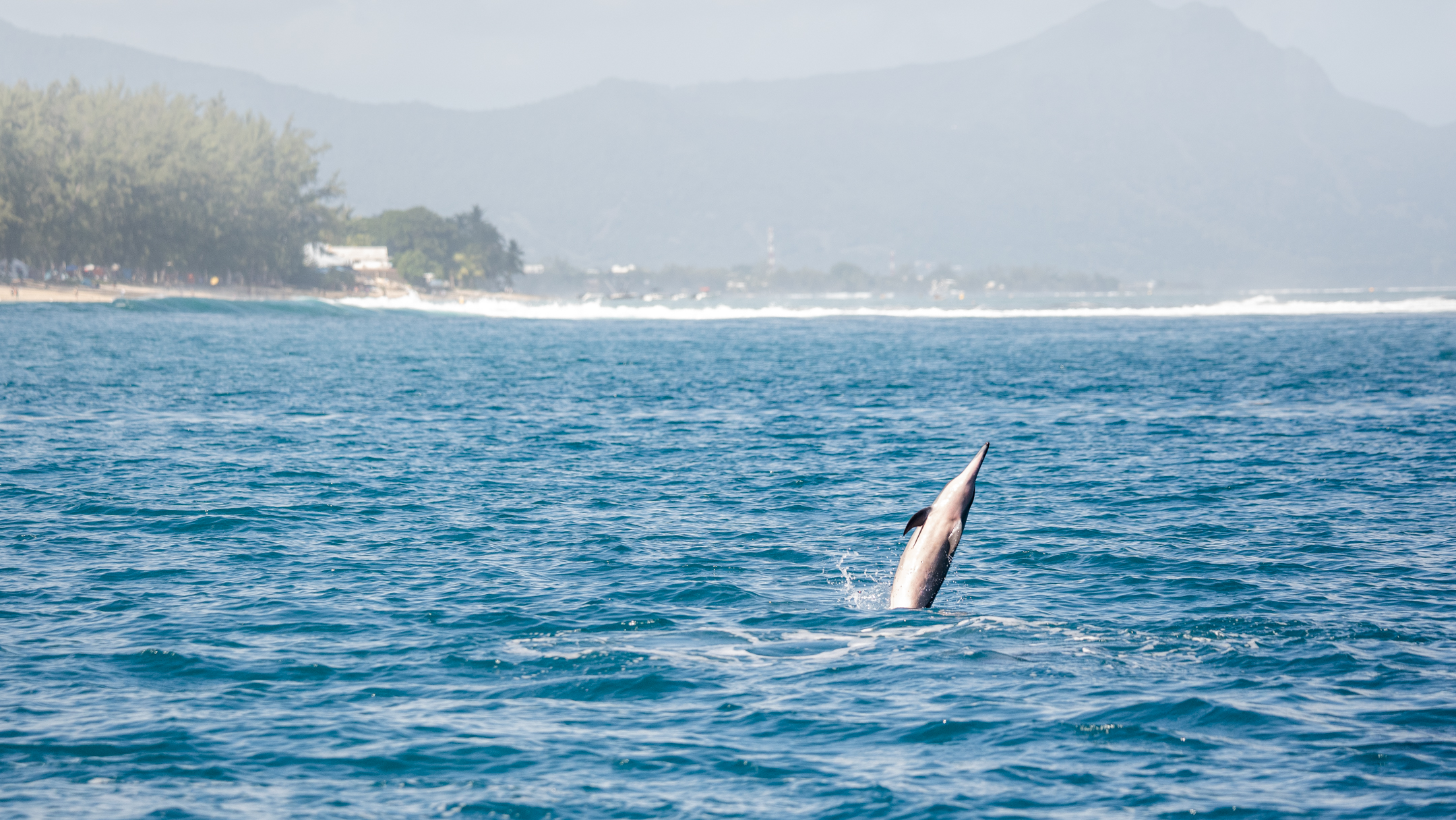
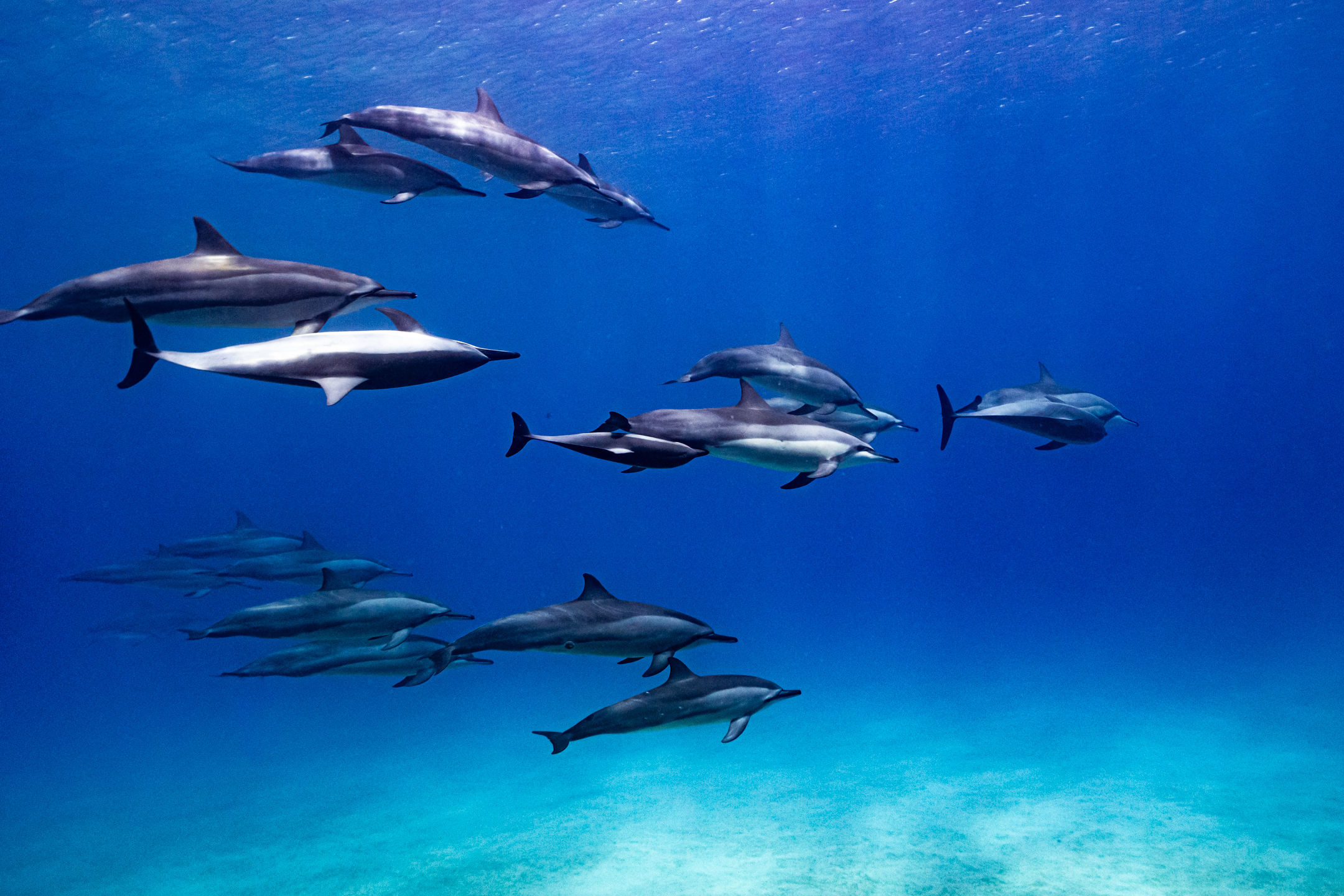
🐋 The Sperm Whales: Giants of the Depth
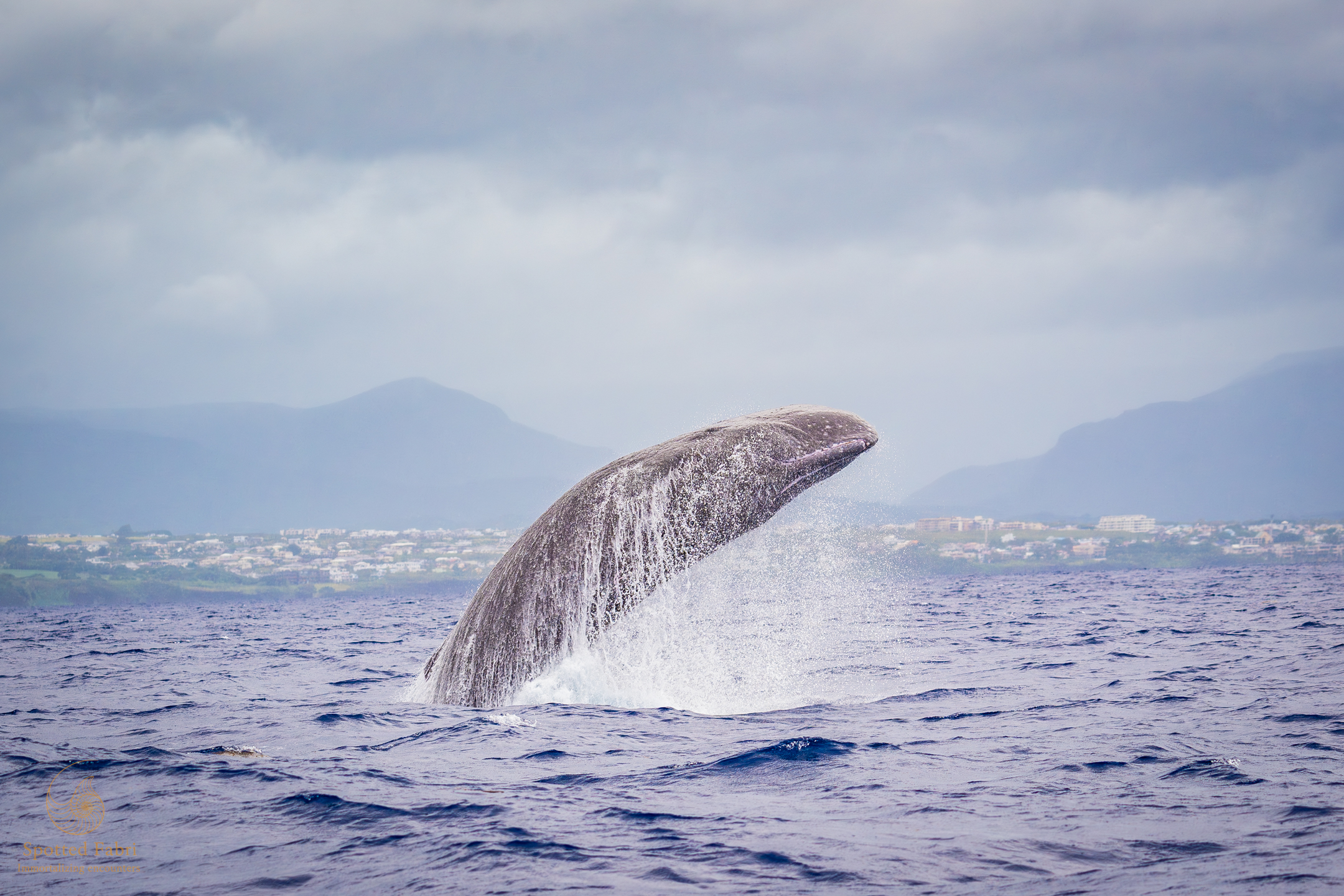
Sperm whales aren’t just passing through—they live here. Mauritius is one of the few places on Earth where you can observe resident sperm whale pods year-round. These are families led by grandmothers, mothers, and daughters. They raise their calves in these waters. Males, once grown, roam the Indian Ocean but sometimes return to mate.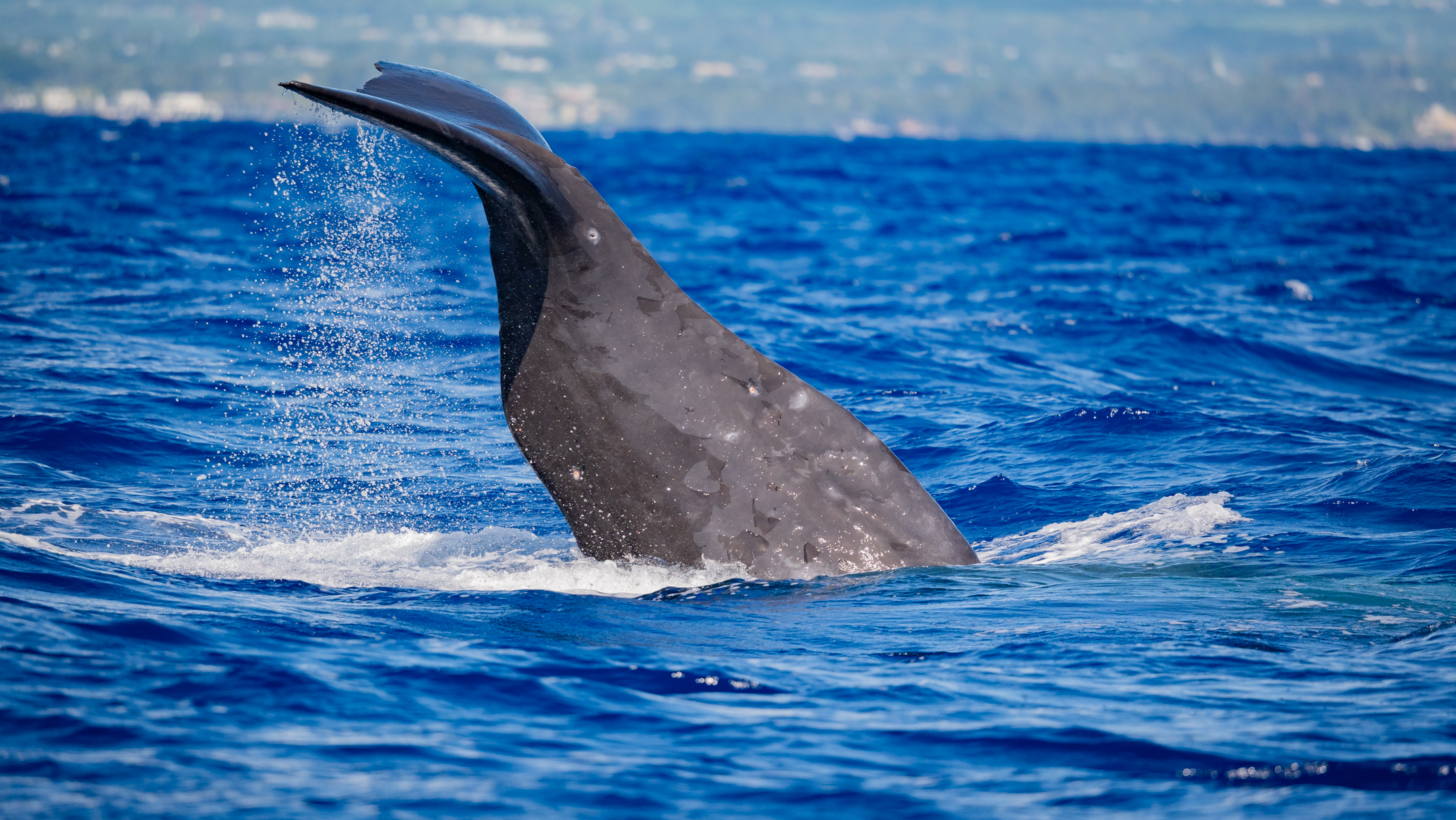
They dive well over 1000 meters, sometimes approaching 3000 meters, to hunt squid. They can hold their breath for up to 90 minutes. Their echolocation clicks are the loudest sound produced by any animal, capable of travelling vast distances underwater.
Sometimes I hear their clicks before I see them. Like sonar from a parallel world. Spending time with them reveals something deeper: they’re not just creatures, they’re a culture—a slow, wise, matrilineal society.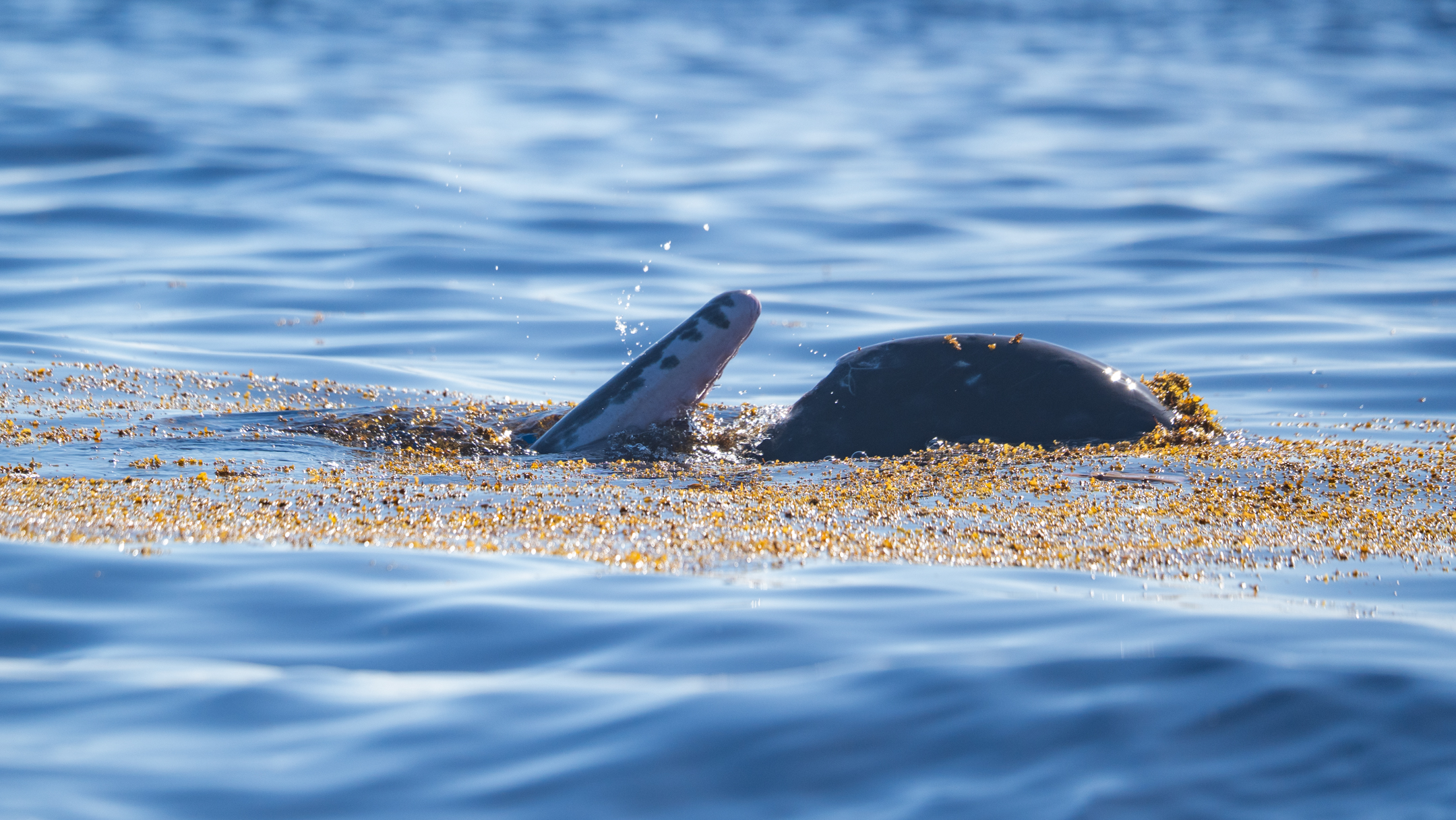
But their home is under pressure. Boat noise, chaotic tourism, pollution, and overfishing don’t just hurt their bodies—they disrupt their traditions, their ability to pass knowledge.
In fact, sperm whales are incredibly social, constantly clicking and codifying the world around them with sound. They develop unique dialects, passed down through generations—vocal traditions as rich as human languages. Studies show that when whale pods are separated or fragmented by human activity, their communication weakens, and their resilience fades.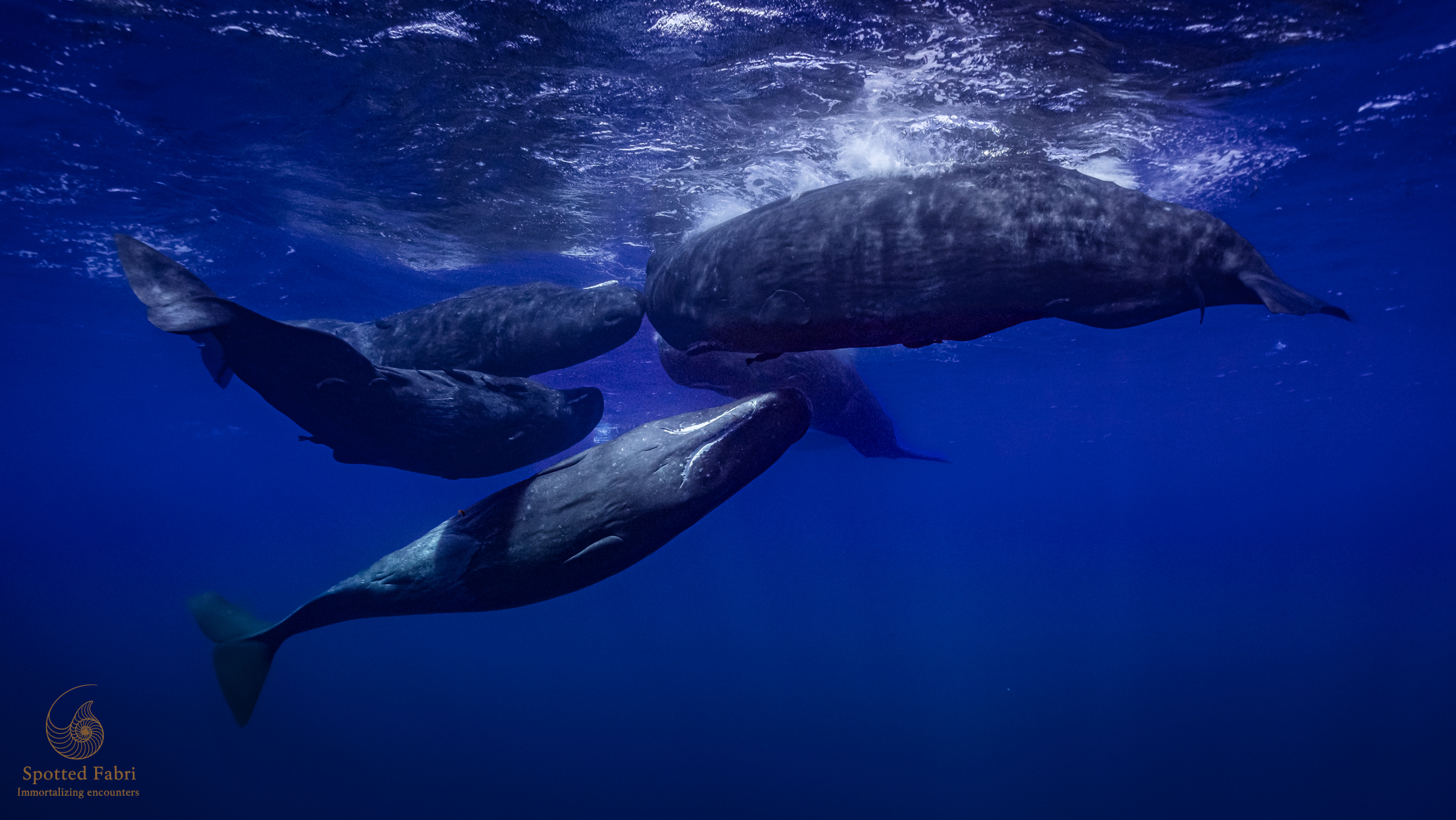
⚫ The Pilot Whales: Ghosts of the Blue
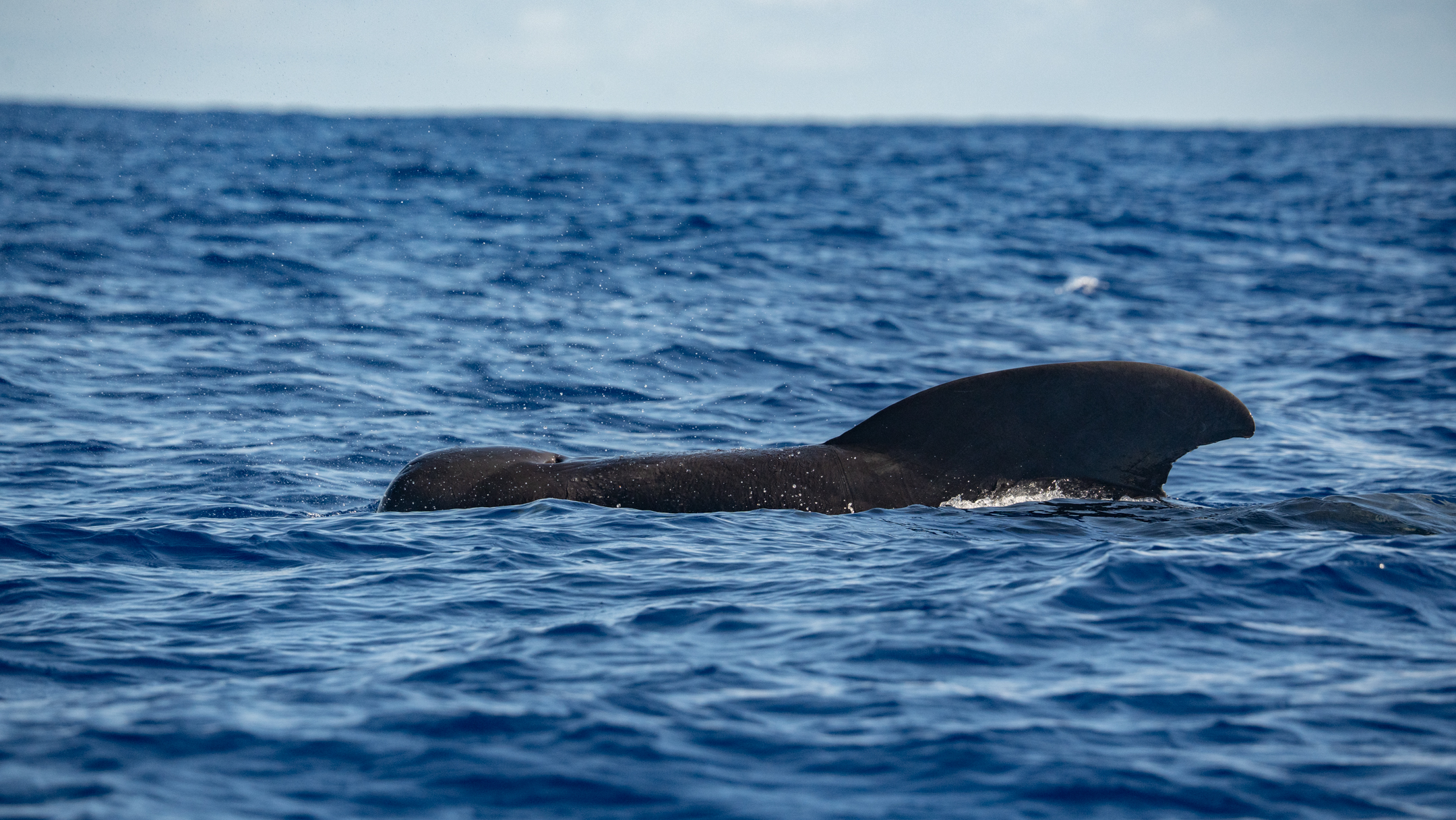
Pilot whales aren’t everyday encounters—but when they arrive, it’s unforgettable. Mauritius is visited by short-finned pilot whales, usually moving in tight, bonded groups.
They're often mistaken for dolphins, but they’re actually part of the dolphin family—just larger, more mysterious. They travel in pods of 30, 40, 50. You hear them breathing in unison before you see them. Then they appear, surfacing all around you. The sea hushes. It feels sacred. They also as well on the hunt for sperm whale. For the first time in my life, i see this behaivour from Pilot whales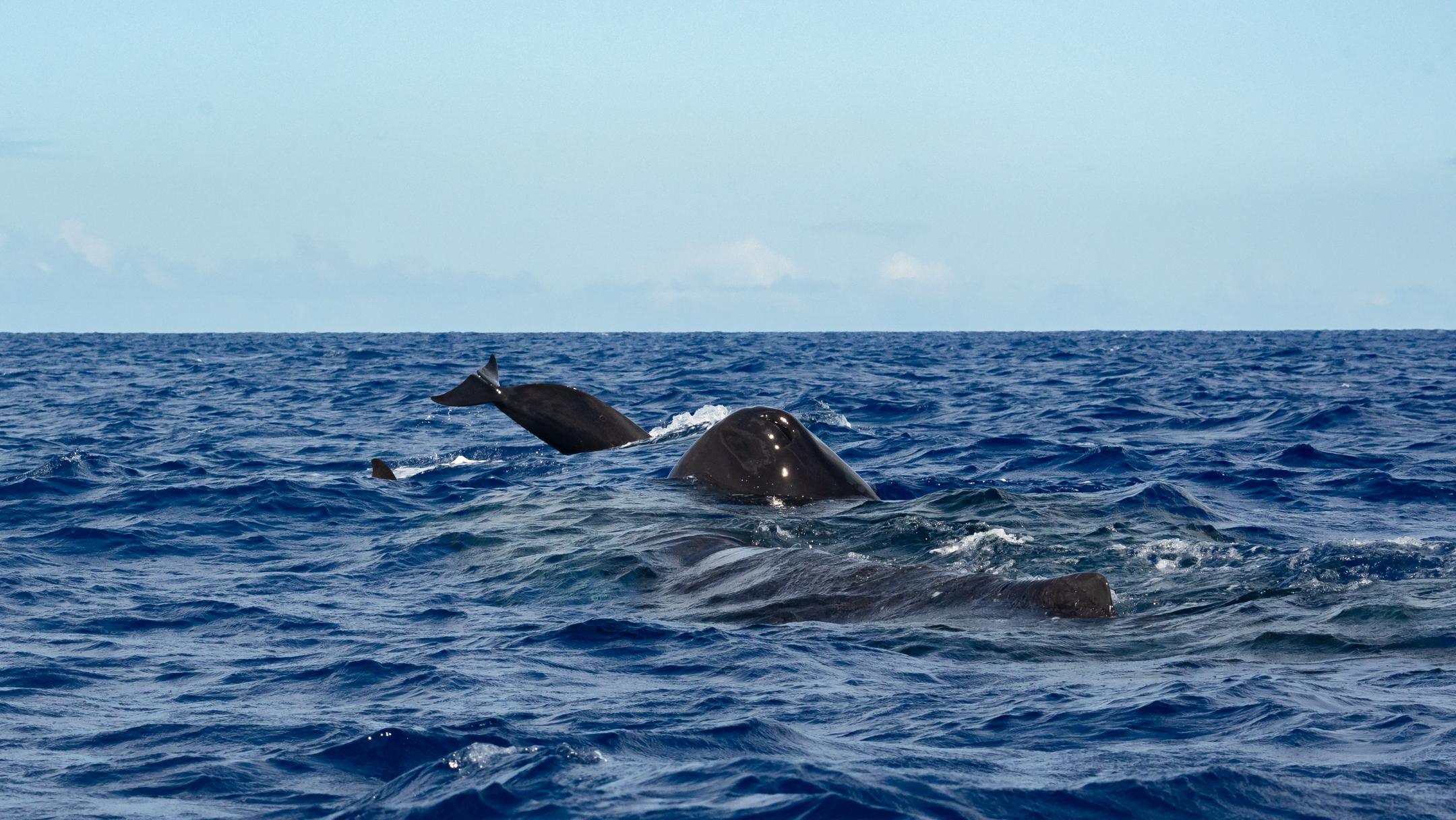
Their social bonds are deep, sometimes tragically so—when one strands, others often follow. Scientists still debate the causes: sonar interference, disorientation, magnetic shifts. But here, in the Indian Ocean, watching them glide in harmony, one thing is clear: they are as delicate as they are majestic.
🐦 Wings, Reefs, and the Ghosts of Coral
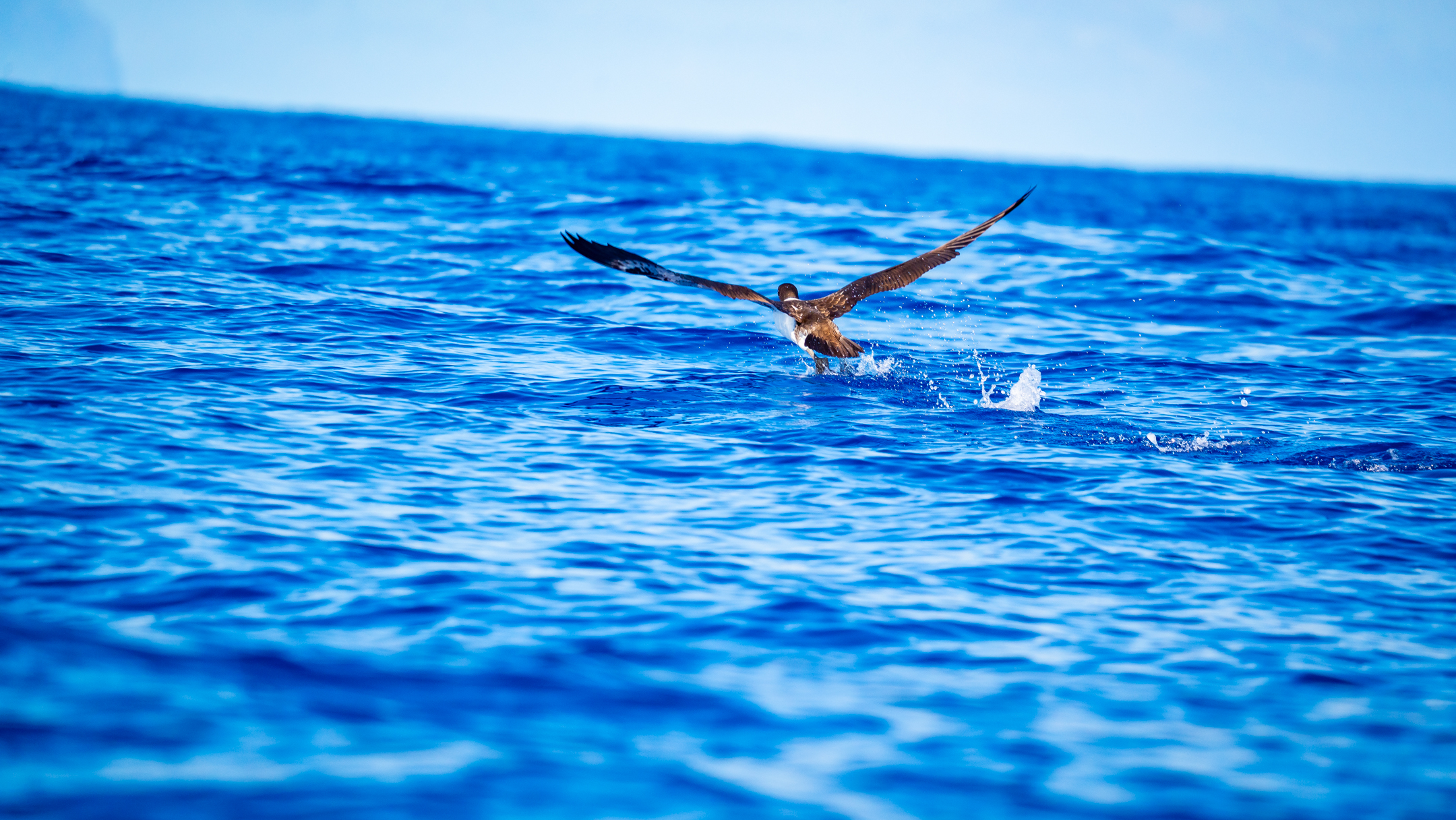
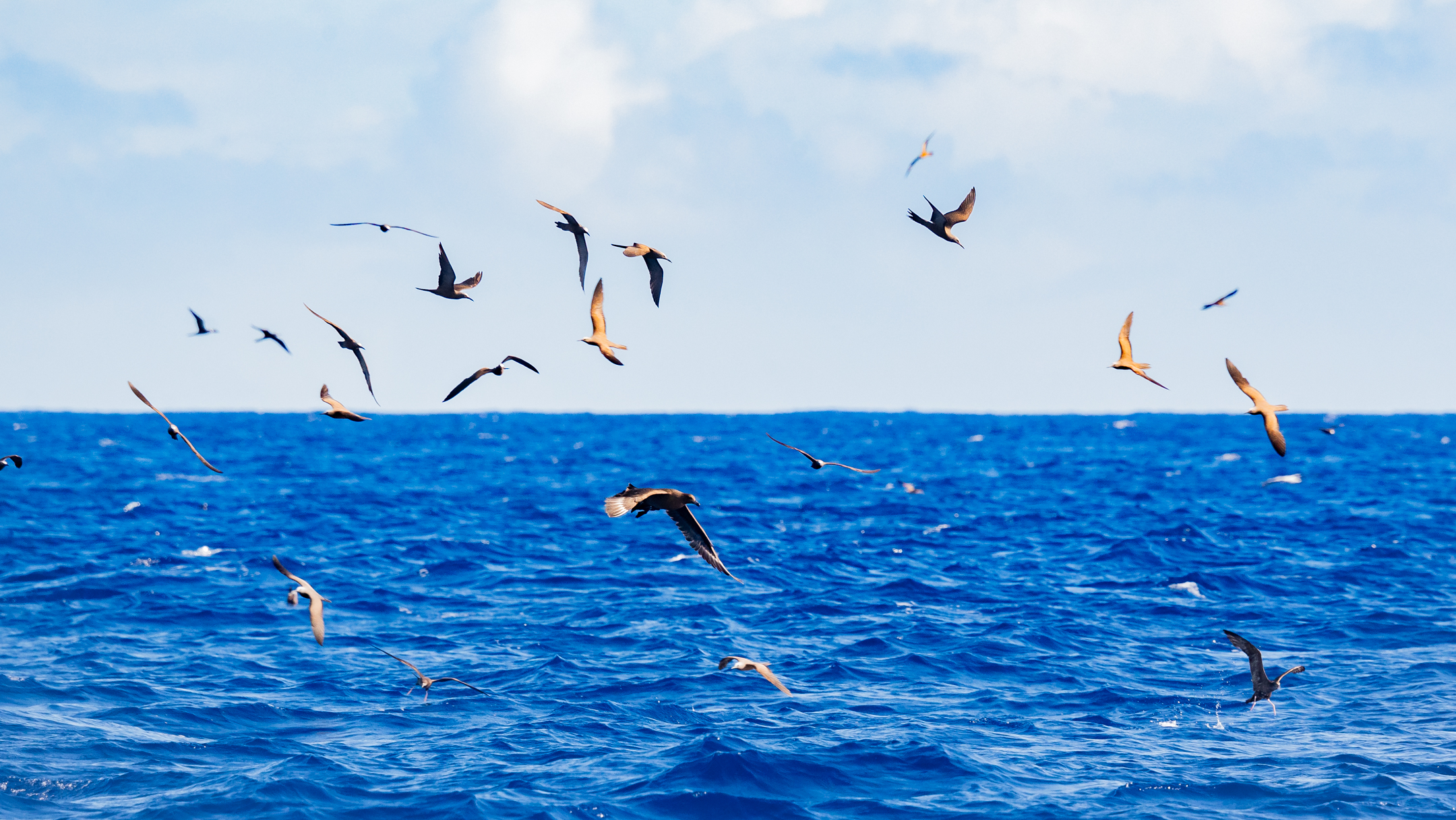
Birds here are like flying omens—white angels with yellow beaks and blue-ringed eyes. Noddies, shearwaters, terns. But the one that struck me most was the booby—elegant, big, unmistakably noble. I saw them glide, hunt, dive. Just being.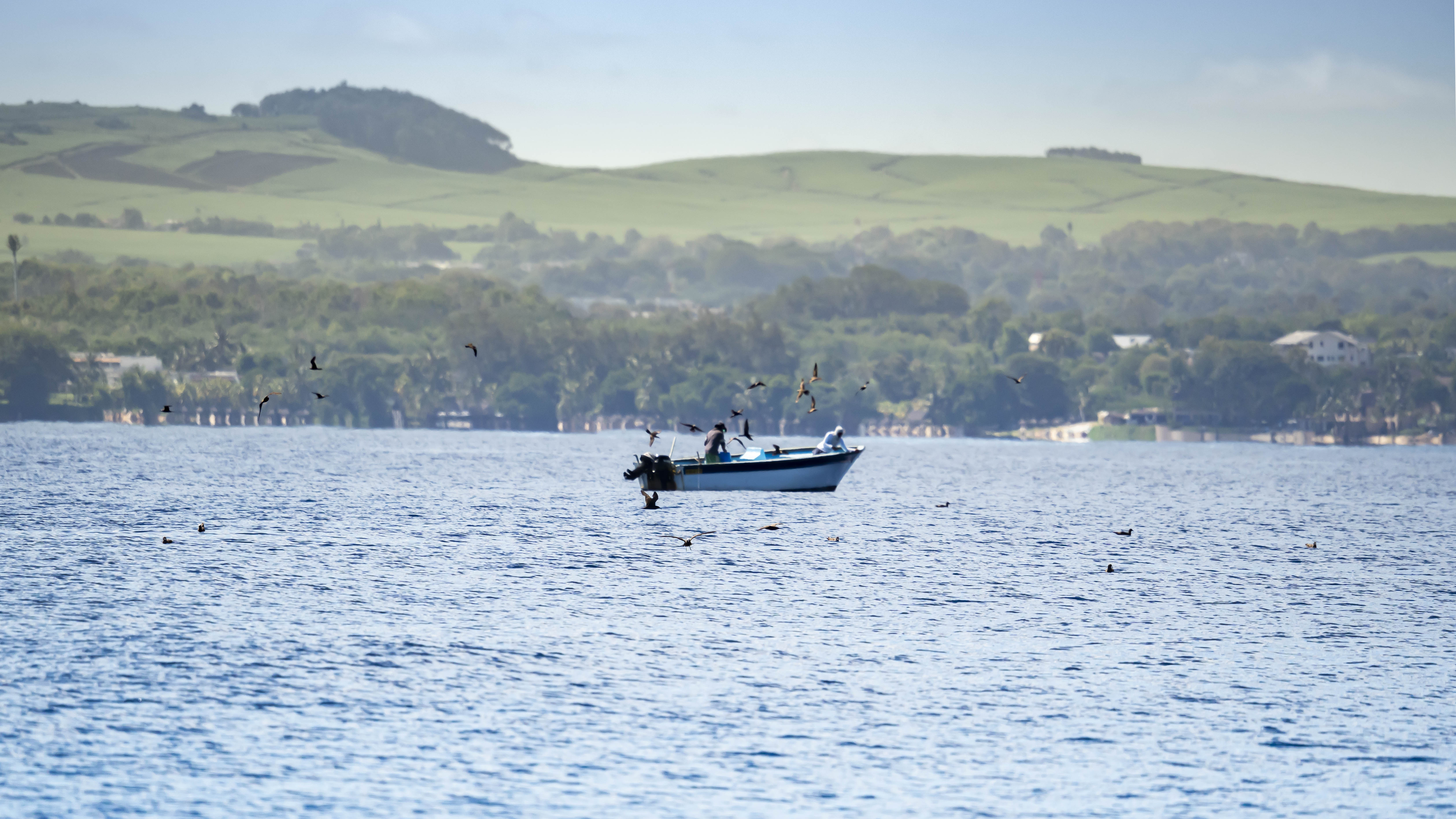
Then, the coral. Even as a major bleaching event affects the island—when corals stress, they go ghostly white—some patches still glow with impossible color. The Indian Ocean feels denser than others. Sometimes oily, nutrient-rich. If the reefs recover, this could be one of the most astonishing underwater sights anywhere.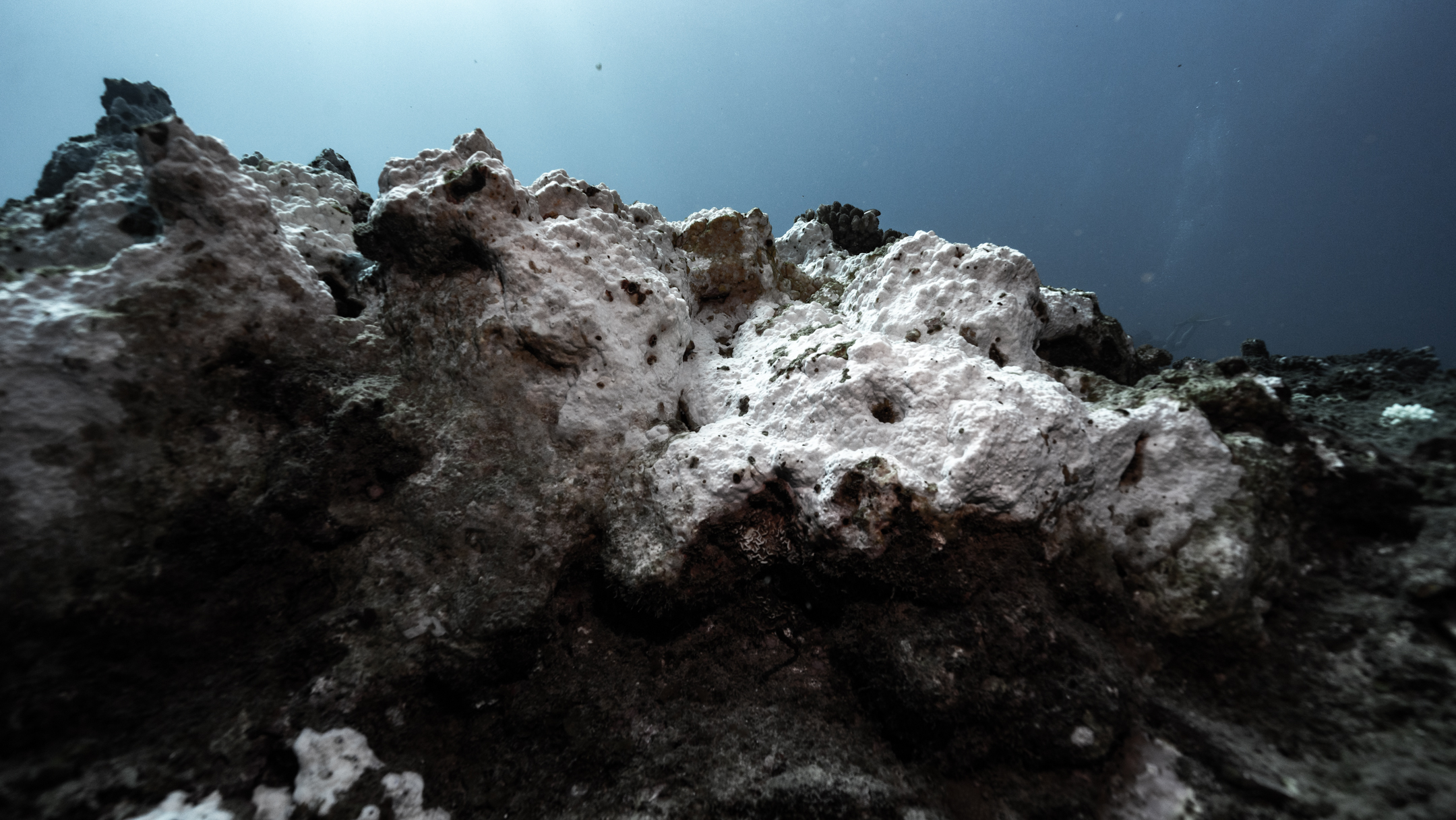
Turtles? Not many. Resorts built on nesting grounds. Boats speeding through feeding areas. Not giving them the time or space they need. Even snorkeling feels dangerous sometimes, with so much traffic.
Sharks? All kinds. Haven’t seen one yet—but I’m going a little crazy searching for the oceanic whitetip. I just hope I’ll be able to tell you that story soon.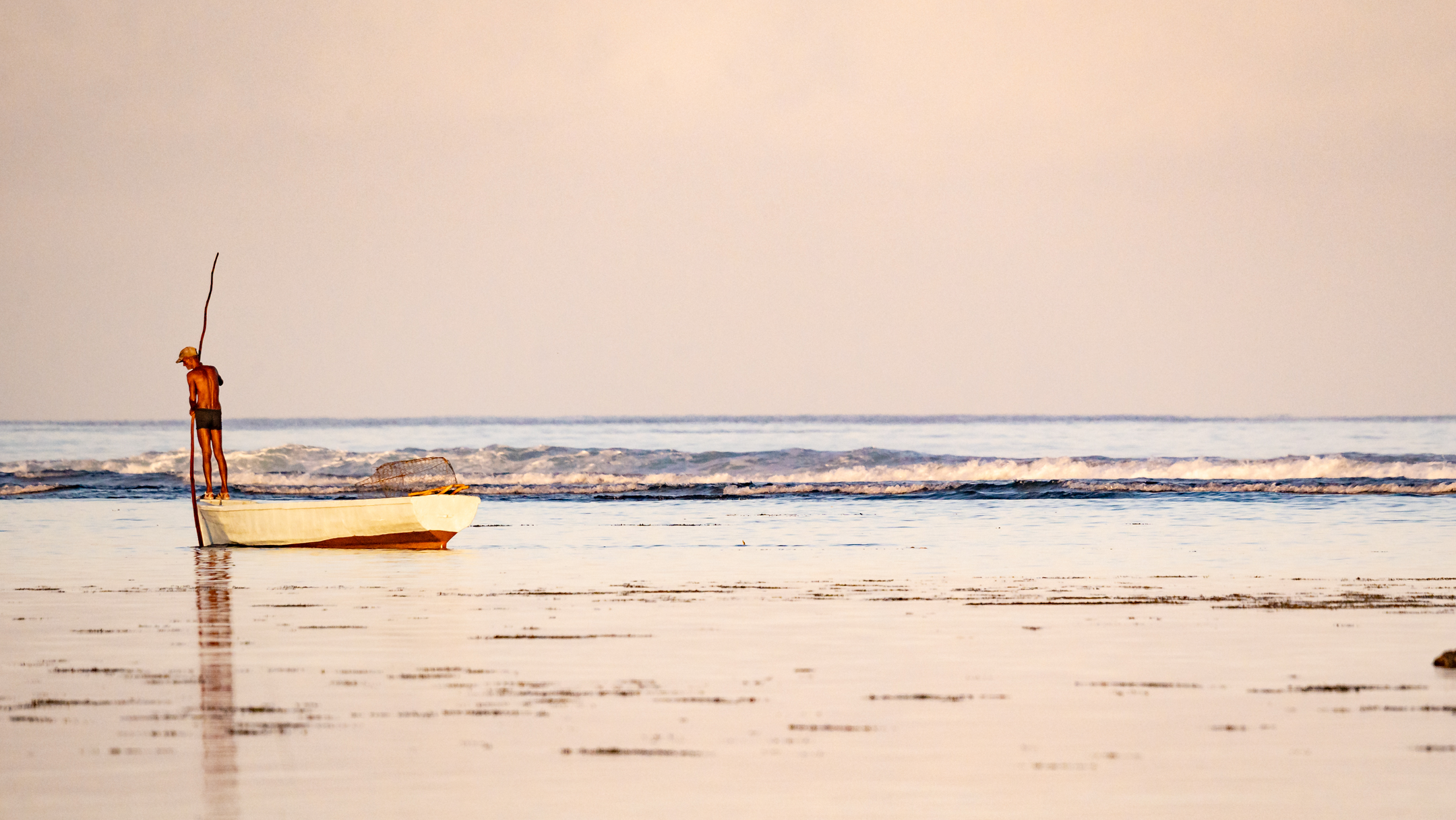
And the fishermen—let’s not forget them. Because the reef, in many ways, is their pantry. Their anchor. Their history. But it’s also fragile. Coral reefs protect the coastline, feed families, and support tourism. Yet they suffer from overfishing, warming waters, pollution, and reckless development.
🧭 A Fragile Paradise Worth Defending
This whole ecosystem—birds, coral, whales, turtles, fish, humans—is interwoven and delicate. But it’s not doomed. We can help. We can demand slower boats. Responsible tourism. Reef protection. Science-backed policies.
Because once you’ve seen the eyes of a whale up close, or watched a booby dive with perfect precision, or heard a coral reef crackle with life—you can’t pretend it’s just scenery. It’s someone’s home.
And it could still be paradise.
Know more about what is happening in Mauritius with the whales
Thanks for reading until here
May the Ocean be with you.png)
Photos by SpottedFabri
If you have any opinion on the matter, lets talk about it...



